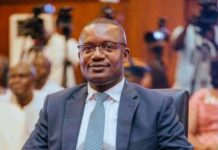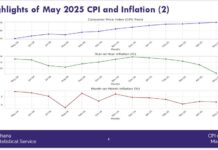A new report on the impact of COVID-19 on social structure and women empowerment has indicated that the socio-economic status of women is getting worse compared to the pre-COVID-19 era.
The report disclosed that factors including diminished access to social services, restricted access to markets, cost spikes, income losses due to loss of job, and returned migrants with no available economic activity have worsened the health and socioe-conomic status of women during the pandemic.
As government is still focused on steering the economy back on track to growth and creating new sustainable economic opportunities for the teeming youth and economically active population, the experts have called on government to pay particular attention to gender-equality or the women population.
The report, which was commissioned by the Africa Skills Hub (ASH) on the theme ‘The Impact of COVID-19 on Gender Equality: Women’s Empowerment and the Rise of New Opportunities Through Business and Innovations’, also showed that the COVID-19 pandemic led to reduced activities of CSOs and NGOs in the country – two agencies which play critical roles in women empowerment.
Giving an overview of the report, the Lead Researcher, Titilope F. Ajayi, noted that it would be prudent to introduce innovative ways of empowering women economically to enable adequate responses to future shocks.
She disclosed that at the peak of the COVID-19 pandemic, reduced mobility, poor access to information on relief programmes with rigid thresholds, as well as reduced activities of CSOs and NGOs, further impoverished the already struggling female population.
Madam Ajayi further stated that although on record more men than women (57 percent) contracted COVID-19, the health of women worsened in the areas of mental and psychological health. This she attributed to poor mental health prioritisation and lack of health infrastructure.
The research was conducted as part of the Women’s Entrepreneurship and Livelihoods Initiative (WELI) carried out across some selected regions in Ghana.
Executive Director-Africa Skills Hub, Daniel Antwi, on his part reiterated the importance of placing women at the centre of innovations in the COVID-adjusted era.
He emphasised that to build back better, it is prudent to involve all stakeholders toward the realisation of a more recoverable economic status for women – especially by encouraging their participation in policymaking.
UNFPA on SGBV
A Programme Specialist at the United Nations Population Fund (UNFPA) Ghana, Adjoa Yenyi, taking her turn stated that as the world seeks to build back better – to ensure that development and attainment of agenda 2030 continues – there is a need to ensure that sexual gender-based violence (SGBV) is adequately addressed.
She emphasised that the UNFPA has three transformative goals, and the last one is zero gender-based violence and harmful practices; such as child marriage and female genital mutilation.
Madam Adjoa noted that addressing issues around SGBV demands that everyone bring on board their expertise as a concerted national effort toward ensuring attainment of the needed success, especially as many vulnerable groups are affected.
According to statistics available at the Accra Regional Office of the Domestic Violence and Victims Support Unit (DOVVSU), as of August 2020, 31.9 percent of Ghanaian women have faced at least one form of domestic violence – physical, economic, psychological, social or sexual, she said.
Domestic violence, she indicated, causes immediate devastating consequences to those affected in the areas of physical injuries, mental health problems and poor well-being. She added that SGBV also has long-term, far-reaching effects; including persistent inequalities between men and women which limit women and girls’ abilities to fulfil their potential and contribute to development of their communities and the nation as a whole.
She noted that the UNFPA is committed to working with partners to explore new strategies and innovative ways of achieving zero gender-based violence and harmful practices – adding that the UNFPA is supporting the Department of Gender to strengthen support to SGBV victims through the orange support System by supporting the establishment of a Support Centre.
The Support Centre will serve as a platform where victims and survivors – through a mobile app (Boame App) or a toll-free call centre, 0800 111 222 – can access assistance to facilitate psychosocial, legal, medical and physical support among others.










